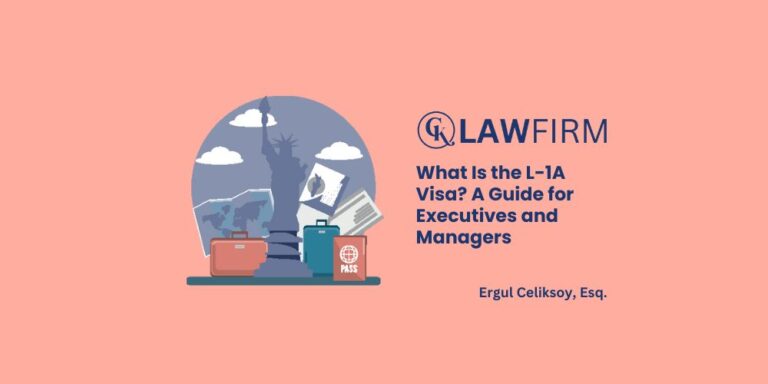Schedule an Appointment with Our Attorneys Now

USCIS’ New Citizenship Guidance: Updates on Legal and Physical Custody Requirements
Explore USCIS citizenship guidance updates, legal and physical custody requirements, and changes for Certificate of Citizenship.
By Asim Kilinc, Immigration Attorney at CK Law Firm
The USCIS Citizenship Guidance provides a comprehensive overview of the legal and physical custody requirements under sections 320 and 322 of the INA for acquiring and deriving U.S. citizenship. This guide also provides a detailed explanation of derived citizenship processes under section 321 of the former INA, which was in effect prior to the enactment of the Child Citizenship Act of 2000.
This update aims to ensure consistent application of legal and physical custody criteria during the evaluation of citizenship applications. Additionally, the changes are designed to support fair and efficient adjudication of applications for Certificates of Citizenship. The updated guidelines will apply to applications filed on or after November 19, 2024, addressing potential uncertainties in the process.
When you read this article, you will have information about the following topics:
- Legal and Physical Guardianship Requirements Detailed
- New Era in Citizenship Applications
- Legal and Policy Basis: Executive Order 14012
- Impact of the Guide
If you have any questions other than these, please do not forget that you can send them to me via the comments section at the bottom of this article, by sending me a message directly via Linkedln or via the website of CK Law Firm Immigration Law Firm, which I co-founded!
Details of Legal and Physical Custody Requirements
The updated guidance outlines the following criteria for legal and physical custody:
- Legal Custody:
- USCIS has broadened the scope of situations in which a U.S. citizen parent is considered to have legal custody of a child. Retroactive (nunc pro tunc) corrections to custody decisions are clarified.
- The evaluation of informal agreements or private custody arrangements without court orders has been explained.
- In cases where there is no formal custody order, a U.S. citizen parent may still be deemed to have legal custody if they maintain actual and uncontested control over the child.
- Physical Custody:
- Physical custody is recognized when the child resides with the U.S. citizen parent or shares the same dwelling. Criteria for assessing actual living arrangements between the parent and child have been detailed.
- Citizenship Derivation Before the Child Citizenship Act of 2000:
- The guidance clarifies the requirements under the former INA section 321, including legal custody, parental marital status, and the child’s age at the time.
- Applications for Certificates of Citizenship:
- USCIS emphasized that applicants who cannot or do not take the oath of allegiance are not eligible for a Certificate of Citizenship.
A New Era for Citizenship Applications
The updated guidance provides clearer criteria for determining the citizenship eligibility of children of U.S. citizen parents. Detailed procedures and explanations are included to ensure timely and consistent adjudication of applications. For instance, in cases without a formal custody order, additional evidence provided during the application process will be considered.
Legal and Policy Basis: Executive Order 14012
These updates align with the goals of Executive Order 14012, which seeks to restore confidence in the lawful immigration system and promote integration and naturalization for new Americans. USCIS has taken steps to remove barriers to citizenship and enhance transparency and guidance in the process, benefiting both applicants and practitioners.
Impact of the Guidance
This update ensures that USCIS can make fair and transparent decisions in citizenship acquisition and derivation cases. The detailed explanations regarding legal and physical custody requirements will help applicants better understand the process.
For more information, refer to Volume 12, Part H of the USCIS Policy Manual or the relevant Policy Alert page. This guidance is an invaluable resource not only for applicants but also for professionals in immigration law.
For professional assistance, detailed information, or legal consultation, contact us via cklawfirm.org, info@cklawfirm.org, or through LinkedIn.
Who is Attorney Asım Kılınç?
Attorney Asım Kılınç is the co-founder of CK Law Firm and is recognized for his expertise in immigration law and U.S. asylum applications. Kılınç completed his Master’s degree at Southern Methodist University Dedman School of Law and is a member of the Missouri Bar Association, with a focus on U.S. immigration law.
Attorney Kılınç’s extensive knowledge and experience in immigration law have significantly contributed to CK Law Firm’s success in this field. He has actively participated in the preparation of over 1,000 cases, demonstrating his expertise in this area. By providing comprehensive and professional legal support to his clients, he helps them adapt to their new lives in the U.S.
Attorney Kılınç is also well-versed in U.S. asylum applications. He meticulously guides his clients through the process and ensures they receive the best legal advice. He provides top-quality service to clients in matters of citizenship, Green Card, work permits, and other immigration processes, supporting them from start to finish on their journey to U.S. citizenship.
Attorney Asım Kılınç, who solidifies CK Law Firm’s leadership in immigration law and U.S. asylum applications, offers reliable and effective legal consultancy services to clients, assisting them in building a new life in the U.S.





